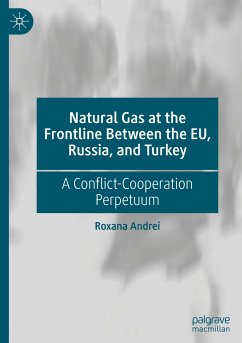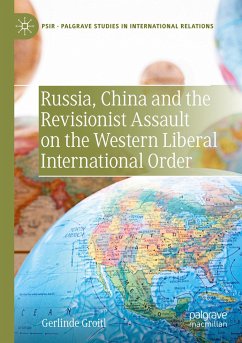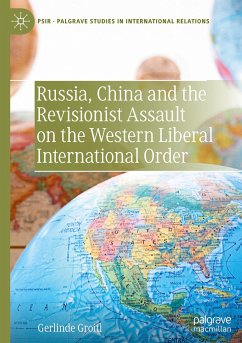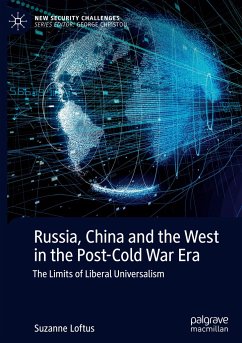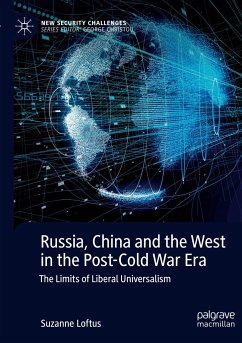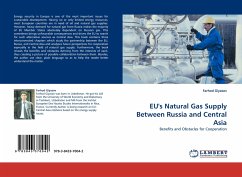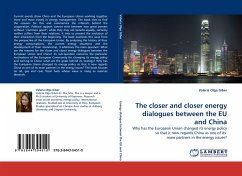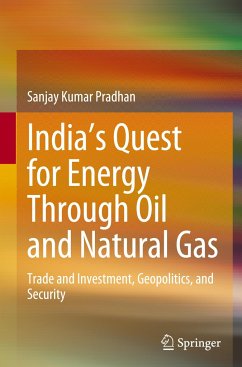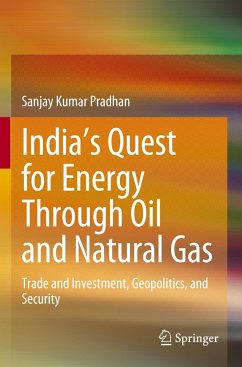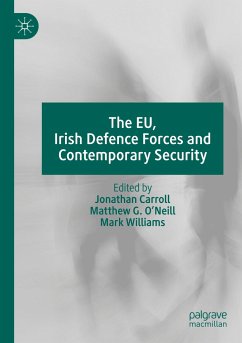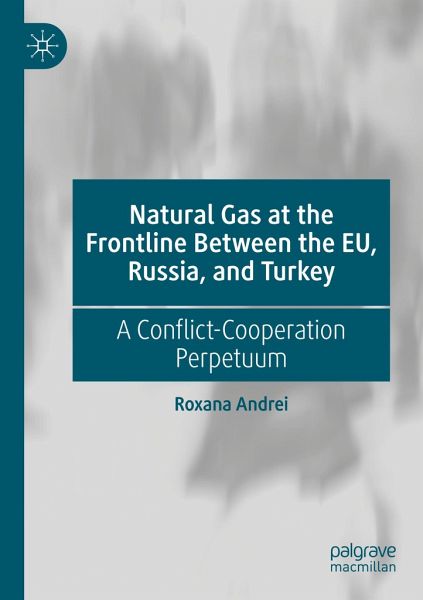
Natural Gas at the Frontline Between the EU, Russia, and Turkey
A Conflict-Cooperation Perpetuum
Versandkostenfrei!
Versandfertig in 6-10 Tagen
106,99 €
inkl. MwSt.
Weitere Ausgaben:

PAYBACK Punkte
53 °P sammeln!
This book analyses the rapidly unfolding events that have impacted on the European energy dynamics, in the light of the way in Ukraine and the energy crisis that have reconfigured, since 2022, the European and the global geopolitical scene, dislocating not only crucial natural resources but also the pace of the energy transition and the continent's existential security, its basic trust and sense of continuity. It introduces an innovative interpretation of the conflict and cooperation dynamics in Europe, by challenging the reader to look beyond the material aspects of energy security, related t...
This book analyses the rapidly unfolding events that have impacted on the European energy dynamics, in the light of the way in Ukraine and the energy crisis that have reconfigured, since 2022, the European and the global geopolitical scene, dislocating not only crucial natural resources but also the pace of the energy transition and the continent's existential security, its basic trust and sense of continuity. It introduces an innovative interpretation of the conflict and cooperation dynamics in Europe, by challenging the reader to look beyond the material aspects of energy security, related to supply and demand, consumption, production and prices dynamics, which I nonetheless explain in detail. Thus, it invites the audience to explore the deeper layer of motivations that underpin the actors' decision to engage in conflict and cooperation, by exploring their cognitive and psychological considerations, in addition to the material ones. For this purpose, it presents a new conceptual tool, the conflict-cooperation perpetuum, in order to explain why the same players, in this case the EU, Russia and Turkey, may choose to simultaneously perceive each other as security threats and trade partners, engaging in both conflict and cooperation simultaneously with the same 'Other'. In addition, it proposes to apply the framework of ontological security, in order to understand the responses of the EU, Russia and Turkey to the major existential crises that have affected them in past years, culminating with the war in Ukraine and the energy crisis of 2022.





